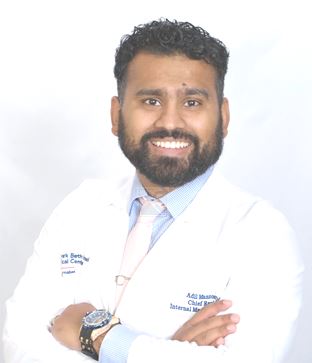THE DOCTOR IS IN

OP / ED BY DR. ROBERT KENNEDY
On January 30, 2020, the World Health Organization declared the covid-19 as a “global health emergency.” This was 17 days after the first recorded case in the United States. Many people were confused about what the virus meant and the threat levels it poses. For the next few weeks, media platforms pushed different narratives about the coronavirus. Some made it seem like the second coming of the Black Death (the bubonic plague), while other news platforms downplayed the coronavirus as nothing more serious than the ordinary flu.
Over the next three years, the coronavirus will have about seven million reported deaths directly associated with it, with the WHO director general even suggesting that the real number is closer to 20 million deaths. However, about two weeks ago, WHO declared that the coronavirus is no longer a global health emergency and instead now a “global health threat.” Of course, this is not in any way suggesting that we have defeated the coronavirus completely. People are still getting the virus all over the planet, and there is always the never-ending threat of new variants emerging, but now, we know there is no longer an emergency
This recent development is a huge win for the world, in general, but most especially for health workers. I remember vividly – during the peak of the coronavirus pandemic in the United States, when hospitals were running out of beds to contain the sick and emergency rooms were getting maxed out – the burnout and frustrations of physicians across the country. I mean, there was already a worrying burnout rate among physicians and other healthcare workers long before the coronavirus, but COVID did truly crazy damage to physician burnout.
Aside from combating the stress associated with the fight against the coronavirus, physicians also had to fight a lot of false narratives and outright wrong medical advice. There was a lot of politics involved, and at some point, members of the public started turning on their doctors. Seriously, there were actual adults who did not want to take the vaccine because they believed the government was trying to turn us into zombies. Those were truly crazy times.
So, you will very much understand when I say the coronavirus not being an emergency anymore is an especially huge win for health workers. That’s certainly one hurdle cleared, and we deserve it. However, there is another hurdle health workers have to overcome – the future. Yes, the future. I’d explain.
Among healthcare workers, there is a lot of mistrust in the future of our healthcare sector. Before the coronavirus, it was due to the high burnout rates, insurance companies wreaking havoc on the health system, stress, and the like. After the coronavirus pandemic, there are even more concerns, particularly about how ready we are as a nation if something like this ever arises again. And when I say healthcare workers, I mean everyone working in the healthcare sector, from doctors to nurses.
If healthcare workers don’t have enough trust in the healthcare sector, how can we instill any trust in the public? Do you recall what happened with the social distancing regulations and mask mandates – where many members of the general public lost trust in the CDC to make unbiased and only medically-relevant suggestions? I remember writing on this particular topic, and many other physicians also took the mantle of reassuring the public. Now, imagine what happens when the very healthcare workers who should reassure the public also don’t trust the future. If what you imagined is an even more broken healthcare sector, your guess is as good as mine.
This article was written by Dr. Adil Manzoor, DO, a Board-Certified Internist & Board Certified Pediatrician who works as a Hospitalist and Emergency Room Physician. He is also the current President of Garden State Street Medicine, a non-profit organization whose sole purpose is to provide free preventive and acute urgent care services for the homeless. He is also the co-founder of his own unique medical practice, Mobile Medicine NJ & House call Doctors. He is also currently pursuing an Executive MBA and a Master’s of Science in Healthcare Leadership at Samuel Curtis Johnson Graduate School of Management and the Weill Cornell Graduate School of Medical Sciences.
References
- https://www.washingtonpost.com/health/interactive/2023/health-care-workers-covid-staffing-burnout/
- https://www.fiercehealthcare.com/providers/pandemic-distrust-prolonging-covid-19-and-undermining-future-care-ama-president-says
- https://www.bmj.com/content/381/bmj.p1041

